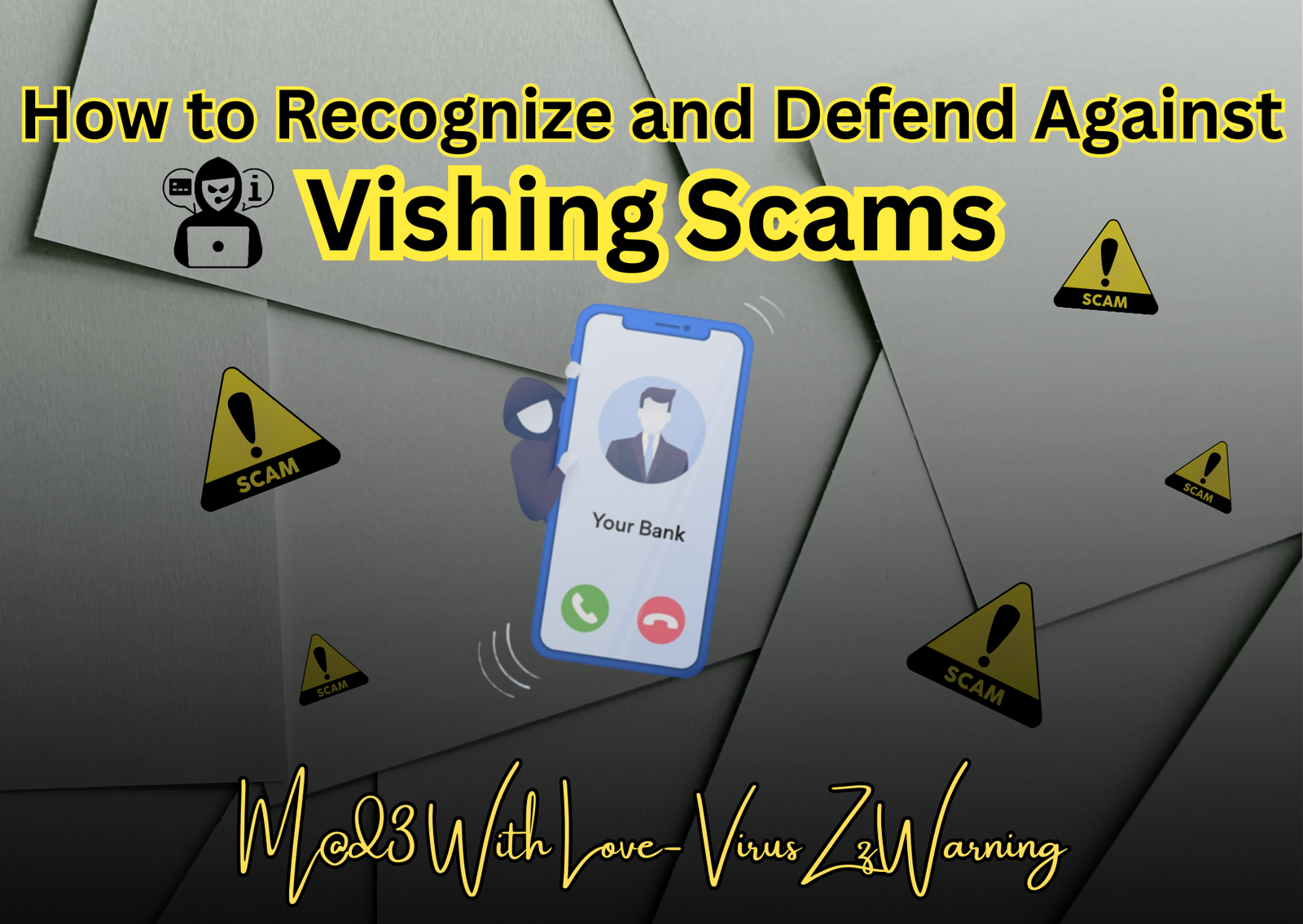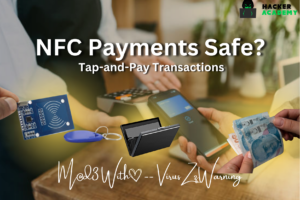
How to Recognize and Defend Against Vishing Scams
As technology continues to advance, so do the tactics of cybercriminals seeking to exploit individuals for their personal and financial information. One such tactic that has gained prominence in recent years is vishing, a portmanteau of “voice” and “phishing.” Vishing scams involve criminals using phone calls or voicemail messages to deceive unsuspecting victims into divulging sensitive data. In this comprehensive guide, we’ll explore the world of vishing in detail, understanding how it works, recognizing its various forms, and equipping ourselves with the knowledge to thwart these scams and protect our personal information.
Unveiling the World of Vishing
1. Defining Vishing

Vishing, short for “voice phishing,” is a type of social engineering attack in which malicious actors impersonate trusted organizations or individuals via phone calls or voicemail messages. The ultimate goal is to extract personal, financial, or confidential information from their victims.
2. Anatomy of a Vishing Attack
Caller ID Spoofing
One common tactic employed by vishing scammers is caller ID spoofing. They manipulate the caller ID information to display a familiar or legitimate number, increasing the likelihood of the call being answered. This deceptive practice preys on the victim’s trust.
Creating Urgency and Fear
Scammers excel at creating a sense of urgency or fear to manipulate their targets. For instance, they might claim that your bank account is compromised and must be addressed immediately. This urgency coerces individuals into revealing sensitive information hastily.
Impersonation
To gain trust, vishing fraudsters often impersonate individuals in positions of authority, such as bank managers, government officials, or tech support personnel. This impersonation is designed to lull victims into a false sense of security.
Practical Steps to Avoid Falling Victim
Understanding the inner workings of vishing is crucial, but protecting yourself against it is paramount. Here are practical steps to help you avoid falling victim to vishing scams:
1. Verify Caller Identities
Never blindly trust caller ID information, even if it appears to be from a reputable source. If you receive an unsolicited call requesting personal information, hang up immediately. Then, independently verify the caller’s identity through official channels.

2. Guard Your Personal Information
Under no circumstances should you share personal or financial information over the phone, especially if the call wasn’t initiated by you. Legitimate organizations will never ask for sensitive details like Social Security numbers, account passwords, or credit card information via phone.
3. Resist High-Pressure Tactics
Vishing scammers rely on high-pressure tactics to rush you into making impulsive decisions. Always take your time when handling phone calls and be skeptical of anyone demanding immediate action, payments, or information over the phone.
4. Educate Yourself
Empower yourself with knowledge about common vishing scams and the tactics they employ. Awareness is your strongest defense against falling victim to these fraudulent schemes.
5. Use Call Screening Tools
Many modern mobile phones and landlines offer call screening features that can help identify and block potential vishing calls. Enable these features to reduce the risk of unwanted calls slipping through.
Reporting Vishing Scams
Reporting vishing scams is crucial to combat this form of fraudulent activity effectively. While the process may vary slightly depending on the nature of the scam and your location within India, here are some general steps and agencies to contact when you encounter vishing scams:
Local Police:
Start by reporting the vishing scam to your local police station. They may take your statement and initiate an investigation if necessary. Provide as much information as possible, including the caller’s phone number, the date and time of the call, and any details about the scam.

Cyber Crime Cells:
Many Indian cities and states have dedicated cybercrime cells or units to handle online and phone-based scams. You can file a complaint with these specialized units, as they have expertise in dealing with cybercrimes. Search online for the nearest cybercrime cell in your region.
National Cyber Crime Reporting Portal (NCRP):
The Indian government has established the NCRP as a platform for reporting cybercrimes, including vishing scams. You can submit a detailed complaint on this portal, and it will be forwarded to the relevant law enforcement agencies for further action.
Reserve Bank of India (RBI):
If the vishing scam involves banking or financial fraud, contact the RBI’s Banking Ombudsman with a formal complaint. The RBI oversees banking-related complaints and can assist in resolving issues related to fraudulent transactions.

Telecom Regulatory Authority of India (TRAI):
If you believe that the vishing calls are related to telecom service providers or if you receive unsolicited calls, you can report such issues to TRAI . TRAI regulates telecom services in India and may take action against telemarketing violations.
Consumer Forums:
You can also escalate your complaint to consumer forums and organizations that advocate for consumer rights. They can guide you on how to proceed legally if you have suffered financial losses due to a vishing scam.
National Do Not Call Registry:
To reduce the number of unsolicited calls and potential vishing attempts, you can register your phone number on the National Do Not Call Registry. This registry is managed by TRAI and helps reduce unwanted calls from telemarketers.
When reporting vishing scams, it’s essential to provide as much detail as possible, including the phone number from which the call originated, any recorded conversations, and any information you may have about the scammer. Additionally, be prepared to cooperate with law enforcement agencies throughout their investigation.
Conclusion
Vishing scams represent a significant threat in our digital age, as they manipulate trust and exploit individuals for sensitive information. By comprehending the mechanics of vishing and following the comprehensive tips provided in this guide, you can significantly reduce your risk of becoming a victim. Remember that your personal information is invaluable, and safeguarding it against attacks is paramount for your online security and peace of mind. Vigilance, awareness, and proactive measures will help you stay one step ahead of vishing scams and maintain your privacy intact. Stay informed, stay safe, and protect yourself from vishing attacks.



